 | Thomas Babington Macaulay Baron Macaulay - 1849 - 480 pages
...were priests, and held valuable preferment: but these rare exceptions did not take away the reproach which lay on the body. The clergy were regarded as,...practice tended to degrade the priestly character. Land had exerted himself to effect a change ; and Charles the First had repeatedly issued positive... | |
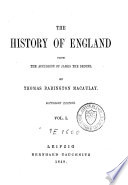 | Thomas Babington Macaulay - 1849 - 884 pages
...were priests, and held valuable preferment: but these rare exceptions did not take away the reproach which lay on the body. The clergy were regarded as,...comfortable revenue, lived in the houses of laymen. It bad long been evident that this practice tended to degrade the priestly character. Laud had exerted... | |
 | Churchill Babington - 1849 - 130 pages
...were priests and held valuable preferment: but these rare exceptions did not take away the reproach which lay on the body. The clergy were regarded as...figure of a gentleman, ten were mere menial servants." It shall be my object to examine this statement, so far as the extraction of the Clergy is concerned.... | |
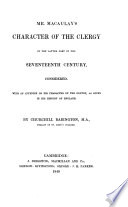 | Churchill Babington - 1849 - 182 pages
...were priests and held valuable preferment: but these rare exceptions did not take away the reproach which lay on the body. The clergy were regarded as...figure of a gentleman, ten were mere menial servants." It shall be my object to examine this statement, so far as the extraction of the Clergy is concerned.... | |
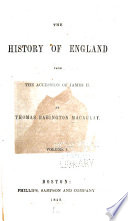 | Thomas Babington Macaulay Baron Macaulay - 1849 - 550 pages
...were priests, and held valuable preferment : but these rare exceptions did not take away the reproach which lay on the body. The clergy were regarded as*,...made the figure of a gentleman, ten were mere menial ser vants. A large proportion of those divines who had no benefices, or whose benefices were too small... | |
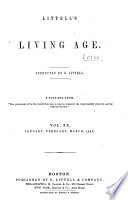 | 1849 - 638 pages
...in generalization and detail. These are characteristic passages. — Lit. World. THE COUNTRY CLERGY. The clergy were regarded as, on the whole, a plebeian class. And, indeed, for one who made the ijiire of a gentleman, ten were mere menial sertanls. A large proportion of those divines who had no... | |
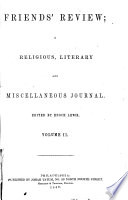 | 1849 - 854 pages
...learning, declined also her influence. "The sacerdotal office lost its attraction" for gentlemen ; the " Clergy were regarded as, on the whole, a plebeian class," and the domestic chaplain held a position that was by no means enviable. "If he was permitted to dine with... | |
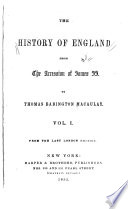 | Thomas Babington Macaulay Baron Macaulay - 1852 - 546 pages
...were priests, and held valuable preferment : but these rare exceptions did not take away the reproach which lay on the body. The clergy were regarded, as,...the whole, a plebeian class. And, indeed, for one whw made the figure of a gentleman, ten were mere menial servants A large proportion of those divines... | |
 | William Robins - 1853 - 226 pages
...places, that " for one who made the figure of a gentleman, ten were menial servants;" and he adds, " a large proportion of those divines who had no benefices,...comfortable revenue, lived in the houses of laymen." " The Ordinary," in his " discretion," or in his hurry to secure a more lucrative preferment for himself-—... | |
 | Philip Anderson - 1854 - 218 pages
...refers, when he describes with such exaggerations the degradation of the Clergy. He writes : — " The Clergy were regarded as, on the whole, a plebeian...figure of a gentleman, ten were mere menial servants." And again ; — '' A young Lévite might be had for his board, a small garret, and ten pounds a year,"... | |
| |